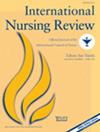The Association Between Self-Esteem, Assertiveness, and Professional Competence Among Palestinian Newly Graduated Emergency and Critical Care Nurses
Abstract
Aim
This study aimed to assess the levels of self-esteem, assertiveness, and professional competence among Palestinian newly graduated emergency and critical care nurses and the association between these constructs.
Background
Nurse shortage is a global issue, leading to the employment of newly graduated nurses in high-stress areas like emergency and critical care units. Self-esteem and assertiveness are essential for high-quality nursing care. There is a lack of studies examining the relationships between self-esteem, assertiveness, and professional competence, particularly among newly graduated nurses in Palestine, where unique challenges exist due to political conflicts and resource shortages.
Methods
A cross-sectional design with a convenience sampling method was used to recruit 170 newly graduated emergency and critical care nurses. Data were collected using Rosenberg's Self-Esteem Scale, the Assertiveness Questionnaire, and the Nurse Professional Competence (NPC) Scale during the period from July to September 2024.
Results
The participants had moderate self-esteem (M = 21.05, SD = 2.36), moderate assertiveness (M = 77.73, SD = 3.06), and high professional competence (M = 67.28, SD = 14.62) levels. Associations were found between professional competence and self-esteem (r = 0.406, p < 0.01), assertiveness (r = 0.353, p < 0.01), age (r = 0.360, p < 0.01), workplace (p.b.r = −0.225, p < 0.01), and intention to leave the profession (p.b.r = 0.152, p < 0.05). The main predictors of professional competence were self-esteem and assertiveness. Emergency newly graduated nurses had higher professional competence, while critical care newly graduated nurses had higher assertiveness.
Conclusion and Implications for Nursing and/or Health Policy
Policymakers and hospital administrators should prioritize specific strategies and interventions aimed at boosting self-esteem and assertiveness among newly graduated nurses. This focus will directly enhance their professional competence, capability, and retention, enabling them to better maintain a patient safety culture and deliver high-quality care. Furthermore, correlating factors should be considered when developing and implementing these strategies and interventions to ensure maximum effectiveness.

 求助内容:
求助内容: 应助结果提醒方式:
应助结果提醒方式:


